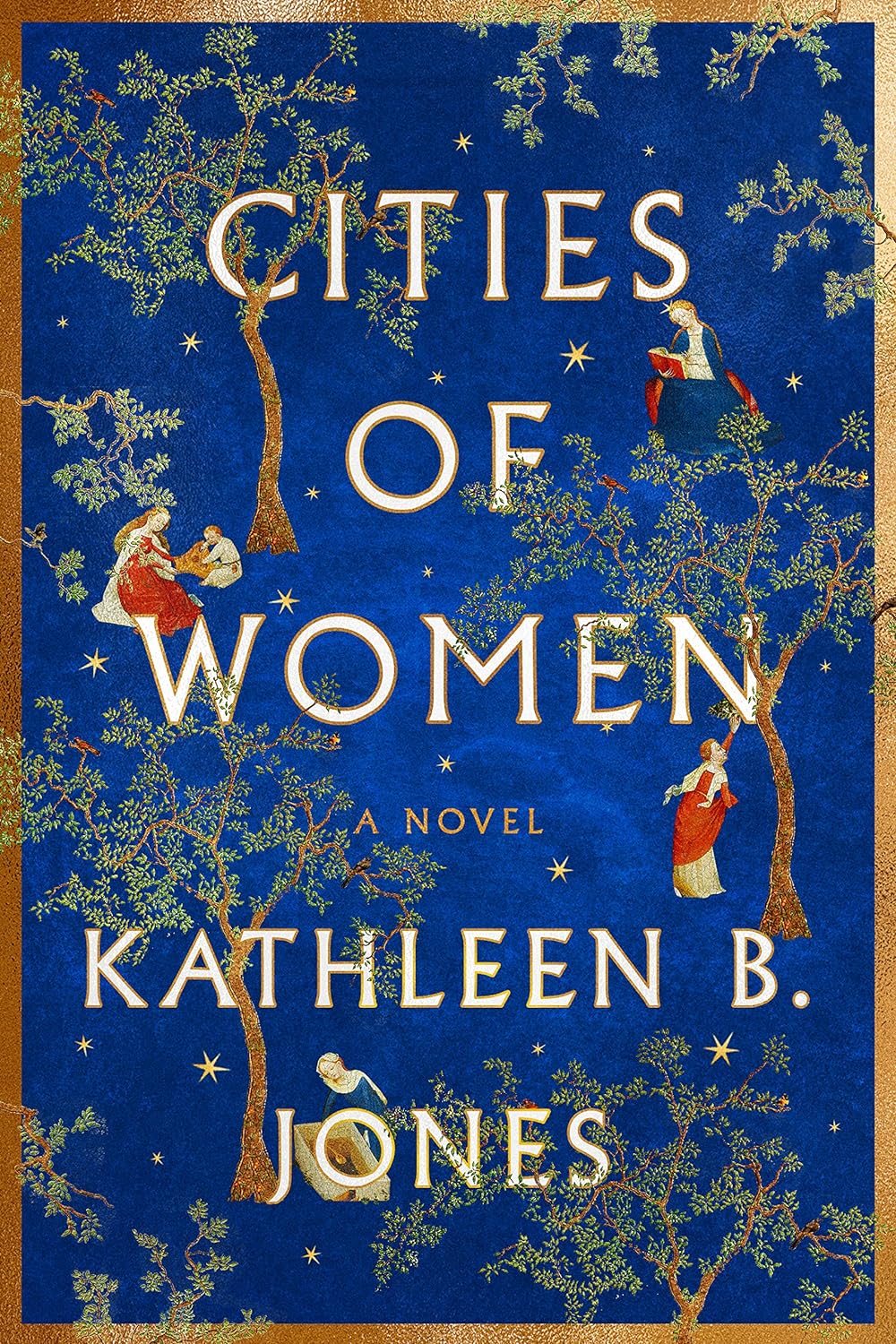Review of Cities of Women by Kathleen B. Jones

Cities of Women
Kathleen B. Jones
Keylight Books, 2024, 288 pages
$16.99
Reviewed by Dot Persica
Cities of Women by Kathleen B. Jones begins with a beautiful premise: it is a book dedicated to all the women artists who have been made invisible. Her love for and commitment to historic lesbians is clear and indubitable from the very beginning, and it shapes her narration.
Jones has much in common with Verity Frazier, the protagonist—a disillusioned academic whose curiosity is rekindled by Christine de Pizan, or rather by the suspicion that the hand responsible for the artwork in her manuscripts may have belonged to a woman artist called Anastasia. This idea propels a journey in search of the truth (as a native Italian speaker, the choice to name her Verity, veritas, is a little bit on the nose, but I imagine for readers who aren’t accustomed to Latinisms this is more subtle), as Verity is dying to unearth tangible proof of her theory.
What counts as fact is open to question—Verity speaks these words to her ex, Regina, with whom she has a strange (alas normal in lesbian terms) friendship. The incessant search for the real truth behind the accepted, dogmatic “truth” defines this book and the queer experience: what are we if not love’s archaeologists, tirelessly digging for proof that we aren’t the first or the only people to have loved the way we love, in the face of the world telling us that we are solitary exceptions?
Some descriptions of Verity’s amazement when interacting with valuable artifacts during her research reminded me of my experience at the Lesbian Herstory Archives—to touch the texture of the past, as Kathleen B. Jones says, provides a closeness to the subject that just can’t compare to simply reading about it, and the author succeeds in describing it as an almost religious experience.
Readers are accompanied back and forth between Verity’s present day and Christine’s late medieval Europe, both studded with political considerations about two eras that at first glance couldn’t seem more different but have much in common, touching on modern gentrification and its predecessors, the ever-present corruption of Church and State, and misogyny. The narration spans multiple characters’ points of view: an ambitious choice which is definitely called for in a book like this, though it’s not always executed smoothly.
To me, the author seemed more comfortable and truthful when writing in heightened language, leaving me with a feeling that she was holding back, almost restraining herself when writing in a more modern style. This made me yearn to be catapulted back into the thirteenth century.
Altogether, I thought the concept was wonderful, though very difficult to concretize.
I did not think it was unrealistic for Verity to encounter someone with the same name as the woman she was researching: Anastasia. As a lesbian whose existence is constantly altered by unbelievable coincidences, and who has observed the same in her lesbian friends’ lives, I found this a perfectly accurate, reasonable, and frankly quite brilliant form of representation.
As lesbians, every event in our existence is somehow brought on by strange forces we can’t define, and maybe it’s none other than our Lesbian Ancestors having their way with our little lives. I think this book captures that.
Dot Persica (any pronouns) is a lesbian performer born in Naples, Italy. They are a classically trained soprano with a vague dance background; they have experience directing opera, helping out here and there on film sets, and doing stand-up. They are a co-founder of the Italian lesbian+ collective STRASAFFICA*, with which they have organized community events, raised funds, and created beautiful bonds. They also write poetry, like all lesbians.
"Empowerment comes from ideas."
― Charlene Carruthers
"Your silence will not protect you."
— Tourmaline
"Gender is the poetry each of us makes out of the language we are taught."
— Leila Raven


